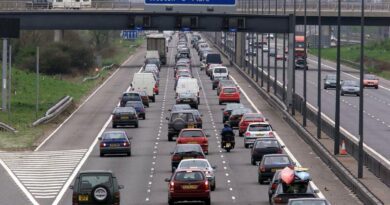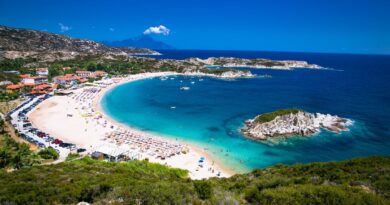As Venice charges tourists here are other rules Italy has put on visitors to holiday hotspots
Venice has became the first city in the world to introduce a payment system for visitors in an experiment aimed at dissuading tourists during peak periods.
Around 30 million tourists visit Venice in a typical year – with about seven out of 10 (or 21 million) staying only for the day. Just before the Covid pandemic, Unesco warned the city’s “status as a World Heritage property is in jeopardy”.
A leading city transport and tourism official, Arianna Fracasso, told The Independent the scheme is aiming “to safeguard the city from overtourism”.
Ms Fracasso said: “It’s like a museum in the open air, so we want to safeguard it.”
However, Venice isn’t the only place in Italy that has recently introduced new measures aimed at slowing tourist flows.
Here are some of the initiatives currently in force across Italy:
Venice
Read more on Italy travel:
The lagoon city has introduced tickets for day trippers that cost €5 and are valid from 8.30am 4pm local time. The experiment came into force on 25 April, a national holiday in Italy. Tickets will be needed for the following 10 days and thereafter for most weekends until mid-July.
Venice residents, students, workers and home owners are exempt from paying or booking a slot. Visitors aged under 14 and tourists with hotel reservations will need to be registered, but access for them will be free of charge.
How does the Venice system work?
Simon Calder explains:
Any visitor who wishes to be in the historic heart of Venice – anywhere in the city apart from the Piazzale Roma transport access area and the offshore islands – between 8.30am and 4pm on the prescribed dates must register online, in advance, at cda.ve.it/en.
You will need a QR code on your smartphone or printed out to be allowed inside the ancient city.
If you simply want to pay the fee, clicking on “Pay the access fee” will take you through a fairly straightforward process. One tricky aspect is that you have to pretend you have read the privacy policy (all in Italian) by clicking on it, before you can enable a checkbox.
Other cities, such as Como, have said they are considering introducing a similar measure, but are waiting to see how the Venice initiative works before deciding.
Besides this, Venice has also said that from June it will limit the size of tourist groups to 25 people and ban the use of loudspeakers by tour guides.
Florence
Florence announced in October it was banning new short-term residential lets on platforms such as Airbnb in its historic centre. It also offered three years of tax breaks to landlords of short-term holiday lets if they start offering ordinary leases for residents.
The city’s famous museum, the Uffizi, offers discounts to people who arrive before 8.55 a.m. and lower prices off-season. To spread out crowds, it also closes at 10pm once a week.
Cinque Terre
The five villages that make up the Cinque Terre on the Italian Rivieria regularly get swamped with visitors.
To try to reduce the overcrowding at peak periods, the authority which oversees the area said this week it would charge visitors €15 to walk the most celebrated coastal path. In addition, the path can only be walked in one direction.
Read more: Why you should visit Lerici, Italy’s under-the-radar alternative to the Cinque Terre
Capri
The picturesque small island that lies across the bay from the southern city of Naples has doubled its entry fee, which is automatically added to ferry tickets, to €5. The fee will be charged from 1 April to 1 October.
Ischia, Procide, Lampedusa, Linosa
These islands have introduced limits, or outright bans, on cars for non-residents during the main tourist season.




